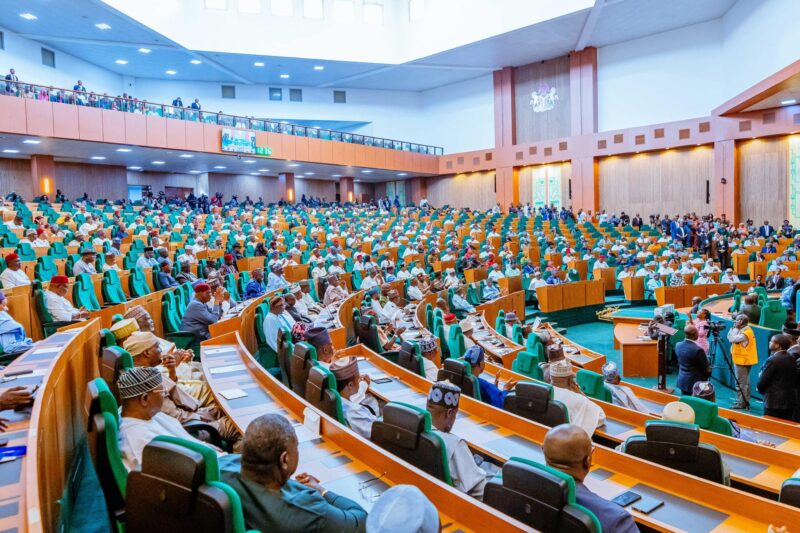The House of Representatives has taken a significant step toward reforming Nigeria’s fast-growing digital financial sector as it considered the bill to establish the Nigerian Fintech Regulatory Commission (NFRC) for the licensing, supervision, and regulation of fintech companies and their business activities in Nigeria.
The proposed legislation, sponsored by Fuad Laguda (APC, Lagos), scaled second reading during Tuesday’s plenary.
Leading the debate on the general principles of the bill, Mr Laguda said the legislation seeks to create a statutory body responsible for the licensing, supervision, and regulation of Financial Technology (Fintech) companies and service providers in Nigeria, a move he described as “long overdue.”
According to him, the NFRC will serve as a central authority to regulate, coordinate, and standardise the operations of fintech firms currently operating under multiple regulatory bodies.
“Currently, Nigeria has no single regulatory authority regulating businesses, practices, and operations of Fintech Operators and Service Providers despite their contributions to national growth and development,” he said.
He cited data from the African Development Bank, Statista, and Financial Times, noting that between 2020 and 2021, the Nigerian fintech industry raised over $500 million across more than 103 registered startups.
The figure rose to $800 million by September 2021, and by 2024, the sector had attracted over $2.2 billion in investments, underscoring the urgent need for dedicated oversight and protection.
Mr Laguda explained that the fintech industry is presently regulated by a wide range of agencies including the Central Bank of Nigeria (CBN), Nigerian Deposit Insurance Corporation (NDIC), Nigerian Communications Commission (NCC), Securities and Exchange Commission (SEC), National Information Technology Development Agency (NITDA), National Insurance Commission (NAICOM), Corporate Affairs Commission (CAC), Federal Inland Revenue Service (FIRS), Nigeria Data Protection Commission (NDPC), and the National Office for Technology Acquisition and Promotion (NOTAP).
However, he argued that this “regulatory overlap” has created operational confusion and inefficiency, leaving fintech operators without a unified framework or standard for compliance.
Currently, he added, the only recognised body coordinating fintech activities is the Fintech Association of Nigeria, a private-sector initiative without statutory powers.
“This Bill seeks to establish the Nigerian Fintech Regulatory Commission to establish standards, rules, and codes of practices for Fintech operators in Nigeria,” Mr Laguda said.
Addressing cyber threats and financial crimes
The lawmaker also expressed concern over the rising incidents of cyberattacks, hacking, and online fraud that have plagued fintech companies such as Opay, PalmPay, Moniepoint, and Paystack between 2020 and 2024.
He said these challenges could have been mitigated if Nigeria had an independent regulatory authority dedicated to fintech risk management, data protection, and cybersecurity coordination.
He further noted that the bill aligns with President Bola Tinubu’s Renewed Hope Agenda, particularly its focus on promoting ease of doing business, digital inclusion, and regulatory reform in the financial technology ecosystem.
Mr Laguda said the commission would also provide independent reviews of fintech performance, enhance transparency and accountability, and ensure compliance with financial and data protection laws.
READ ALSO: Nigeria nears diaspora voting as Reps, NiDCOM launch digital response system
“This bill aims to support the federal government’s efforts to mitigate digital fraudsters, unethical hack, and internet marauders who are negatively disrupting corporate performance, financial activities, and business operations of fintech operators and service providers in Nigeria,” he said.
Next steps
The bill was immediately adopted without debate and the Speaker of the House, Abbas Tajudeen who presided over the plenary referred it to the House Committees on Banking Regulations; Digital and Electronic Banking; Science and Technology; and Communications for further legislative scrutiny and input before being presented for a third reading.
If passed into law, the Nigerian Fintech Regulatory Commission will become the country’s first independent agency solely responsible for overseeing the fintech ecosystem, a major policy shift in the regulation of Nigeria’s burgeoning digital financial services industry.








